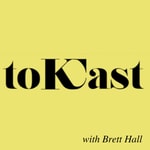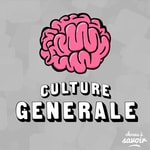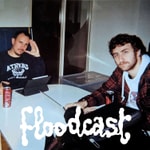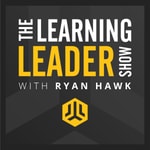ToKCast – Détails, épisodes et analyse
Détails du podcast
Informations techniques et générales issues du flux RSS du podcast.

ToKCast
Brett Hall
Fréquence : 1 épisode/10j. Total Éps: 243

Classements récents
Dernières positions dans les classements Apple Podcasts et Spotify.
Apple Podcasts
🇨🇦 Canada - philosophy
30/07/2025#69🇩🇪 Allemagne - philosophy
22/07/2025#92🇩🇪 Allemagne - philosophy
21/07/2025#69🇩🇪 Allemagne - philosophy
18/07/2025#81🇩🇪 Allemagne - philosophy
17/07/2025#66🇨🇦 Canada - philosophy
14/07/2025#97🇨🇦 Canada - philosophy
13/07/2025#59🇬🇧 Grande Bretagne - philosophy
13/07/2025#80🇺🇸 États-Unis - philosophy
13/07/2025#93🇬🇧 Grande Bretagne - philosophy
12/07/2025#53
Spotify
Aucun classement récent disponible
Liens partagés entre épisodes et podcasts
Liens présents dans les descriptions d'épisodes et autres podcasts les utilisant également.
See all- https://www.instagram.com/p
11467 partages
- https://freemusicarchive.org/music/Ketsa
284 partages
- https://ketsa.uk/
134 partages
- https://www.storyblocks.com/
134 partages
- https://www.youtube.com/hashtag/ufo
633 partages
- https://www.youtube.com/hashtag/science
30 partages
Qualité et score du flux RSS
Évaluation technique de la qualité et de la structure du flux RSS.
See allScore global : 48%
Historique des publications
Répartition mensuelle des publications d'épisodes au fil des années.
Ep 214: Resources, Wealth, Technology, Error Correction and Knowledge Creation
Épisode 215
mercredi 24 juillet 2024 • Durée 01:26:49
The title is long enough so you look for more here? ;) This one is largely, in truth about energy and what it can do for us. Across the almost 90 minutes I cover how the concepts in the title logically cohere and depend one upon the other and we take a look at "the universal constructor" and compare the possibilities for an optimistic distant future with the reality of our situation now. Fair warning: many Australian examples are employed here. A tiny bit of Trump, a dashing of Deutsch, a yard of Yaron, morsels of Musk, some of Australia's mining magnates for better or worse and plenty of physics, philosophy and even politics. Those on my livestream may have heard a less polished (more profanity stricken) version of some of this material. This is me back to being polite even if there are reasons for frustration...
(See Youtube version for graphs, data and so on: https://youtu.be/ovs18b10d4Q )
Ep 213: ToKCast in Auckland - live
Épisode 214
jeudi 11 juillet 2024 • Durée 01:08:53
This is a recording (with a brief introduction first) of a keynote address I gave to open the 2024 "Naturalistic Decision Making Association" conference. People from business, government and academia came together for 3 days to talk about how to make better decisions under pressure. It was an opportunity for me to share the work of David Deutsch and Karl Popper with everyone from people working in international militaries and government defence organisations, through to leaders in business and university academics and students. Regular listeners will notice this is an adaptation of another recent episode - but I think this live version is better as I say in my introduction.
Ep 204: David Deutsch’s ”The Fabric of Reality” Chapter 11 ”Time: The First Quantum Concept” Part 1
Épisode 205
mercredi 28 février 2024 • Durée 01:00:00
This is really "episode 0" but not quite because we do indeed get to some readings and unpackings of the chapter. But in the overall scheme, that forms a minor part of a longer introduction to the "common sense" understanding of time and then to some relativity (of simultaneity) and reflections on the work of other physicists and popularisers.
Note clips from "The Lord of the Rings" and "Spaceballs" movies are owned by their respective copyright holders.
(Ep 114) Newsletter 3: Manners and Misattributions
Épisode 115
mercredi 20 avril 2022 • Durée 29:12
This is the podcast version of my Substack Newsletter number 3 here https://bretthall.substack.com/p/manners-and-misattributions?r=3r9kb&s=w&utm_campaign=post&utm_medium=web
Links referred to in the podcast can all be found in that article however here is a link to the historian who writes about Dr. Neil Tyson https://thonyc.wordpress.com/2022/04/13/nil-degrasse-tyson-knows-nothing-about-nothing/
and crucially here is a link to my page providing a pdf version of "Schools of Hellas" the book by Kenneth John Freeman https://www.bretthall.org/schools-of-hellas.html
Ep: 113 Steven Pinker’s ”Rationality” Chapter 4 ”Probability and Randomness” Remarks and Analysis
Épisode 114
lundi 18 avril 2022 • Durée 01:19:55
Pinker lecturing on Rationality: https://www.youtube.com/watch?v=gW43X... Link to "psychological study" on what people think about meteorological predictions: https://onlinelibrary.wiley.com/doi/1... titled “A 30% Chance of Rain Tomorrow”: How Does the Public Understand Probabilistic Weather Forecasts?” This video and associated podcast are about Steven Pinker's book "Rationality". Today I am looking at the chapter titled "Probability and Randomness". Well, to be fair: more than "looking" I am doing a close reading...perhaps an excruciating close reading for some. However the book is about rationality and I think we need to be especially careful when explaining this concept to be precise and careful and - yes - perhaps even consistent (as far as is possible). This episode of ToKCast can be watched or listened to in conjunction with episode number 111 titled "Probability: Reality, Rationality and Risk" because in that episode I summarise David Deutsch's lecture on the topic of probability which brings to bear physical realism to the topic and so what I am doing here is comparing the perspective on "Probability" (and randomness) as described in the book "Rationality" with the perspective on probability as viewed under David Deutsch's realistic conception of the concept given what we know from physics (and philosophy). Todays episode serves 3 functions: (1) as a close reading (i.e: a critique in places) of how the concepts "probability" and "randomness" are used in the book - sometimes, as I argue in ways that appear to be inconsistent (2) as a summary of much of the good content in the chapter - for example anyone who wants a refresher on the high school mathematics of probability - we go through some of that (this is not meant to be a backhanded comment - it is interesting material!) and (3) as I have already said this version of probability which I might call the "mainstream academic" vision of probability as compared with probability in light of more recent discoveries in physics. At this point I should also advertise: my newsletter (see episode 112 for details on that) and my Patreon and donations links at www.bretthall.org
(Ep 112) The 3Rs: Reality, Reason and Rationality. Newsletter 1
Épisode 113
jeudi 14 avril 2022 • Durée 26:45
This is an advertisement more than a regular ToKCast episode/video. I will sometimes publish some rough and ready material (compared to what appears here on the actual podcast and so forth) on Substack. If you don't know what Substack is - it's just a place where people write stuff (normally). Usually it's journalists who do most of the stuff there. I am choosing a format where I can write and/or also do audio. Go here to see https://bretthall.substack.com/p/manners-and-marketing?r=3r9kb&s=w&utm_campaign=post&utm_medium=web and sign up. I won't publish everything that I produce there here as well. As I say the purpose of Substack, for me, will be to produce less polished material and perhaps stuff that is less "timeless" - so I can comment on cultural issues and perhaps topics of the day. I mention a few things in this episode and links to those things are: Science Historian criticises Neil Tyson: https://thonyc.wordpress.com/2022/04/13/nil-degrasse-tyson-knows-nothing-about-nothing/ Astronomical Disdain: https://www.bretthall.org/blog/astronomical-disdain
Penn Jillette on the funding of libraries: https://youtu.be/nGAO100hYcQ?t=280
Ep 111: Probability - Reality, Rationality and Risk
Épisode 112
mercredi 6 avril 2022 • Durée 01:06:35
"Slides" are referred to in this episode. Their absence will not hinder understanding for audio-only listeners - enjoy!
This is a "talk about a talk". Back in 2015 David Deutsch gave a lecture titled "Physics without Probability" which ranged over the history of probability, it's uses and misuses and essentially concluded there was no way in which probability featured in the real world - according to known physics. This is a shocking (for most) conclusion and something many will baulk at. The original talk can be found here: https://www.youtube.com/watch?v=wfzSE... and I strongly commend it to all listeners/viewers. Over the years since I have found myself over and again referring to this talk and pointing others to it on the topics of quantum theory or Bayesianism or simply risk assessment.
I do not understand why that talk does not have 10 times the number of viewings. Or 100. It is ground breaking, useful, compelling stuff. It is neither too technical nor too subtle. So this is my attempt to re-sell that talk and provide a slightly different phrasing of what I think is a clear articulation of those important ideas.
People claim to think in terms of probabilities. Physicists speak in terms of probabilities. Philosophers and those who endorse Bayesianism speak in terms of probabilities. How can we do away with it? As an instrument probability might work well. But then so can assuming that your local land is flat even though we know that - strictly - the Earth is curved. Does this matter? If you care about reality and explaining it and hence genuine rationality then you should. Especially when it comes to risk assessment. Towards the end of the podcast I go beyond David's talk into my own musings about various topics - including the notion of risk which has been a request on ToKCast. As always errors herein are my own. If you enjoy this podcast, consider supporting me on Patreon or Paypal. The links for donating can be found on the landing page right here: https://www.bretthall.org
Ep 110: A Tradition of Criticism
Épisode 111
samedi 19 mars 2022 • Durée 07:34
A version of this podcast without the musical soundtrack can be found here: https://youtu.be/YfVl70treS8
An explanation of a tradition of criticism as an error correction mechanism helping ensure the stability of a society.
Also a defence of free speech and liberty for the 21st century.
Music by Ketsa:
1. "Tradition"
2. "Our Little Blessings"
And for those who need it: a pocket sized response to modern day anti-enlightenment figures who say “the west” lacks culture/tradition. Inspired by "The Beginning of Infinity" by David Deutsch.
Ep: 109 ”Objective Morality I: The Principle of Optimism”
Épisode 110
vendredi 11 mars 2022 • Durée 15:06
Morality, like physics, is objective. It is about solving moral problems. In this first part about the nature of objective morality, I discuss "The Principle of Optimism". First stated in "The Beginning of Infinity" by David Deutsch in Chapter 9 of that book titled "Optimism" it states that "All evils are caused by insufficient knowledge". These 7 words have the profound effect of linking epistemology and morality and further, providing people with hope that no matter the conundrum (moral problem) then it, like a puzzle in physics, has a solution which we can find if we try.
Ep: 108 Steven Pinker’s ”Rationality”Chapter 3 ”Logic and Critical Thinking” - reflections and analysis.
Épisode 109
mercredi 2 mars 2022 • Durée 01:41:44
This podcast is about Steven Pinker's new book "Rationality". I read a small number of brief excerpts from the book itself, alongside commenting, criticising and reviewing the content of the third chapter “Logic and Critical Thinking”.
The first half (or so) of this episode is not about the book as much as my personal reflections on academic culture and its treatment of these subject areas "logic" and "critical thinking". I spend some time discussing the global culture of schooling and changes in recent years which incorporate "critical thinking" - following in the footsteps of what has become a fashion in tertiary education. Almost no matter the course a student enrols in now, there is some promise that it will develop one's "critical thinking" skills.
I compare Pinker's vision of rationality with what might be interpreted about that same topic from the work of David Deutsch and Karl Popper. In summary: I found the book highly entertaining in places and an excellent overview of this topic as it might be taught in an Ivy League University in The United States (indeed Pinker says that such a course that he taught was part of the impetus for the book). In terms of being a good substitute for those who might never have been able to afford due to chance, location or cost actually attending such an institution and taking on a course such as one on "Critical Thinking" and “Logic” the book could readily serve as a series of well written university lecture notes. To that end, it is certainly worth the cost for anyone interested in these topics.
If you would like to support "ToKCast" - links for how to do so can be found at the homepage of www.bretthall.org
Thankyou kindly to those who donate :)









